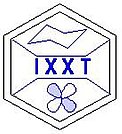Institute of Chemistry and Chemical Technologies
| Institute of Chemistry and Chemical Technologies | |
 | |
| Abreviation | ICCT |
|---|---|
| Established | 2001 |
| Head of department | Sc.D., Prof.Yatchyshyn Joseph |
| Page on lp.edu.ua | Official page |
The Institute of Chemistry and Chemical Technologies was created in October, 2001 on the base of the faculties of Chemical Engineering and Technology of Organic Substances.
Зміст
Historical Background
The Institute of Chemistry and Chemical Technologies was created in October, 2001 on the base of the faculties of Chemical Engineering and Technology of Organic Substances to improve the quality of specialist training. The Doctor of Chemistry, Professor Y. Yatchyshyna was appointed as the Director of the Institute.
The Faculty of Chemical Engineering is one of the oldest faculties organized in 1872 based on the Department of Chemical Technology, which was opened in 1870. During the 1872-1873, twelve students had been studying here. Every year the number of students increased, and in the 1910/1911 academic year there were 157 chemists students among the 1736 students of Lviv Polytechnic University. In 1873, the post of Professor of Mineralogy and Geology at Lviv Polytechnic University was held by Yulian Medvedskyi. He organized educational process in Lviv Polytechnic School, also he held the office of the Polytechnic University rector thrice, the office of the Dean of the Faculty of Technical Chemistry — four times, and the office of vice-dean — three times.
Creation of faculty caused the increase in the number of departments. In 1872 the Department of General and Analytical Chemistry was headed by Dr. Freund August, Department of Chemical Technology by Prof. Ginsberg. Since the second half of the 70s General and Analytical chemistry lectures have been read by Dr. Y. Hrabowskyi, Chemical Technology lectures by Dr. V. Vanikevych.
At various times such outstanding scientists of world renown as Dr. Stephen Nementovskyi, Prof. B. Pavlevskyi,V.Synevskyi, S. Pilyat , I. Mostitskyi worked at the faculty.
In 1967, the Faculty of Chemical Engineering was divided into two faculties — the Faculty of Chemical Engineering and Technology of Organic Substances, which reunited in the Institute of Chemistry and Chemical Technology.
The Institute now unites 13 departments, staffed by 37 doctors of sciences, professors, 112 associate professors, 11 assistant professors and 24 assistants - all of them have a scientific degree of Candidate of Sciences.
Wide attraction of students in participation in research activities conducted in 15 research laboratories of the important areas of research contributes the effectiveness of studying.
In computer classes of the Institute, students are taught to use modern computer technology for researching and designing of new technological processes of refinery processing, synthesis of variety of food and chemicals, as well as calculations and designing of reactors and equipment.
In the Institute, 4 specialized Councils of Master and Doctoral Theses Defense work effectively. For the last 30 years the graduates of Departments defended more than 90 doctoral and 650 master's theses. The faculty members have published nearly 7,500 scientific works, 130 books, monographs, textbooks, more than 700 guidelines, received more than 750 patents.
The best students of the institute are sent for training, studying and introductory training to the universities in Canada, Germany and Poland.
List of the Institute`s Sub-Faculties (Departments):
- Department of Organic Chemistry;
- Department of Chemical Technology of Silicates;
- Department of Chemistry and Technology of Inorganic Substances;
- Department of Technology of Organic Products;
- Department of Chemical Technology of Processing Oil and Gas;
- Department of Plastic Processing Chemical Technology;
- Department of Biologically Active Compounds Technology, Pharmaceutical
- Department of Chemical Engineering;
- Department of Life Safety;
- Department of Analytical Chemistry;
- Department of Physical and Colloid Chemistry;
- Department of General Chemistry.
Research Laboratories (RL) of the Institute of Chemistry and Chemical Technologies
- RL of Synthesis and Application of Peroxide Compounds (RL-8);
- RL of Synthetic Products for the Processing of Fibrous Materials (RL-9);
- RL of Oil and Gas Products Technology (RL-12);
- RL of Processes and Equipment of Chemical Plants (RL-24);
- RL of Biologically Active Substances (RL-28);
- RL of Synthesis, Processing and Application of Polymers (RL-29);
- RL of Monomers Synthesis (RL-37);
- RL of Inorganic Materials Technology (RL-41);
- RL of Analytical Chemistry (RL-42);
- Thermochemical RL (RL-44);
- RL of Building Materials (RL-50);
- ЕКОХІМСЕРТ Testing Laboratory (RL-113).
International Relations
- Institute of Chemistry and Chemical Technology concluded treaties and established active cooperation with university partners:
- Wroclaw Polytechnic University (Poland);
- Gdansk Polytechnic University (Poland);
- Warsaw Polytechnic University (Poland);
- Zheshiv Polytechnic University (Poland);
- Krakiv Polytechnic University (Poland);
- Chenstokhova Polytechnic University (Poland);
- Lyublin Polytechnic University (Poland);
- Shlonsk Polytechnic University (Poland);
- Mining and Metallurgical Academy (Krakiv, Poland);
- University of Texas (USA);
- University of North Texas (USA);
- Technical University of Dresden (Germany);
- Royal Institute of Technology (Stockholm, Sweden).